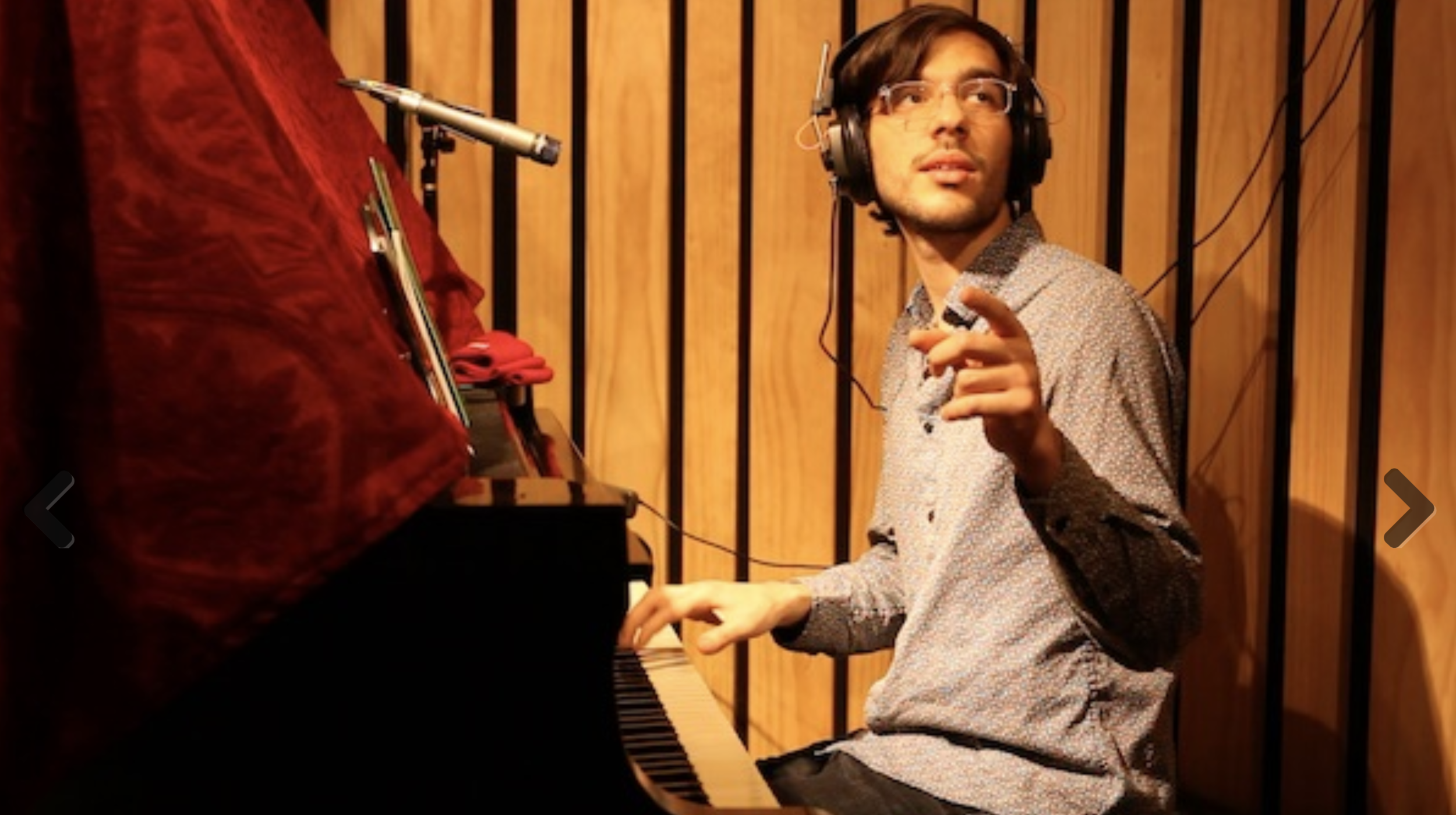Emerging Musicians Eye Album-Release Schedules Amid Pandemic
“People who listen to jazz, world, instrumental…they really care about music. They still listen to full albums. [Especially now,] they need music. I have all this music—I might as well share it.”
Inside Bronx Music House, standing lamps bloom like roses. Percussion instruments hang like ivy on the walls. A stone’s throw from Yankee Stadium, the apartment and practice space provides emerging artists a place to shed and session together—and now, a place to quarantine.
Weeks before the May 1 release of his debut record, New Beginning, pianist and composer Gabriel Chakarji and vocalist and composer Ana Carmela Ramirez, his girlfriend, left their Brooklyn home and moved into Bronx Music House with two of their fellow artists to self-isolate as a family, instead of hunkering down alone.
The decision proved artistically beneficial as well.
Amid uncertainty, Chakarji has found a way to keep up the momentum of his tour-less debut. He and the Bronx Music House quartet—which also includes vibraphonist Juan Diego Villalobos and percussionist Carlos Diaz—have been working out alternative arrangements of New Beginning’s tracklist to share on social media.
“The roots of this music are the percussion and the vocals,” said Chakarji, whose album featuring an octet was recorded in June 2019.
Like Chakarji, many artists issuing debut albums during the pandemic have turned to social media and digital PR tools to find alternate modes of connecting with potential listeners. Bassist and composer Joshua Crumbly dropped the first single, “New Rock Thingy,” from his forthcoming record Rise (Open Book Records) on March 19; guitarist and composer Jocelyn Gould released her Elegant Traveler (Posi-Tone) the following day.
Gould chatted with DownBeat after finishing a two-hour livestream chat with saxophonist Christopher McBride on Instagram, where the two artists listened track-by-track to Elegant Traveler, discussing musical choices and intent. Despite losing her release show in Ann Arbor, Michigan, and much of her summer tour schedule—including festival dates in Toronto and Montreal—the guitarist was heartened by an initial response from peers and fans via social media. She credits the pandemic for bringing the community closer.
“Musicians have offered their support in whatever ways they can give it,” Gould said. “I think that [the response] has been inspired by the fact that musicians are about to endure really hard times.”
For the habitual collaborator, transitioning to bandleader was challenging enough. While Crumbly hasn’t firmed up plans for an online release show—his June 6 date at the Blue Whale in Los Angeles has yet to be postponed—the bassist remains open to adjustments. “I’m a pretty optimistic person,” he said. “So, I’m hoping the pandemic will be resolved before June 6. But in the coming weeks, I’ll be thinking about alternative release shows.”
Two major concerns complicate debuts coming amid the pandemic; most pressing is cashflow. With their tours on hold, emerging artists likely will miss out on the most desirable rescheduling opportunities when venues are inclined to rebook established names first. Chakarji only recently started scheduling a national tour for New Beginning, and remained hesitant.
Pianist Gabriel Chakarji creates new online content from quarantine to maintain momentum for his debut release, New Beginning.
“It’s tricky, because most of the tours scheduled for March are trying to reschedule for November or even next year,” he said. Even showcases—the last bastion of the emerging artist—are moving to spring 2021. “Everything is getting moved,” Chakarji said.
Gould recently came to terms with her own tour’s shaky future. “You know a week ago, I was like, ‘The next month is going to be pretty rough for everybody,’ and now it’s looking like the next year or 18 months might be pretty rough for everybody,” she said. Conversely, she’s been overwhelmed by an unusual wave of global commerce surrounding Elegant Traveler.
“People all over the world have been purchasing my record,” she said. “I’ve gotten orders from Italy, Japan, Hawaii. It struck me as particularly surreal to have people from Italy ordering the new record amidst what’s happening in their country. It gave me a sense of connectedness through music—of everyone’s humanness throughout all of this.”
The other major concern for artists pivoting to online performances is live audio. Chakarji remains confident that the Bronx Music House quartet will create vibrant arrangements of his sprawling, layered compositions, but effectively sharing those arrangements proves challenging. As countless artists have begun livestreaming their performances, Chakarji leans on video releases, so he can manipulate the audio before posting them.
“When you’re livestreaming,” he said, “you can’t really control the sound, if the percussion is too loud, or the vocals, or there is a signal issue.”
For Gould, the hurdle is part of the creative process: “That’s a challenge I’d be happy to face. I might even welcome that, given the circumstance. [Online performance] is so different from the sound of the album, and could be another take on the music that’s recorded.”
Despite challenges in navigating the quarantine’s rough waters, these emerging artists have chosen to stay the course. Crumbly pins his hopes for Rise on the music community’s ability to weather the pandemic, and Gould works to schedule remote interviews and podcast appearances to increase the visibility of Elegant Traveler.
Chakarji plans to continue releasing online content from his studio setup at Bronx Music House, as well as singles from a session he recorded in 2018. While he concedes the average listener consumes music via the curated playlist, he said he believes in the enduring power of a debut album.
“People who listen to jazz, world, instrumental,” he said, “they really care about music. They still listen to full albums. [Especially now,] they need music. I have all this music—I might as well share it.” DB










